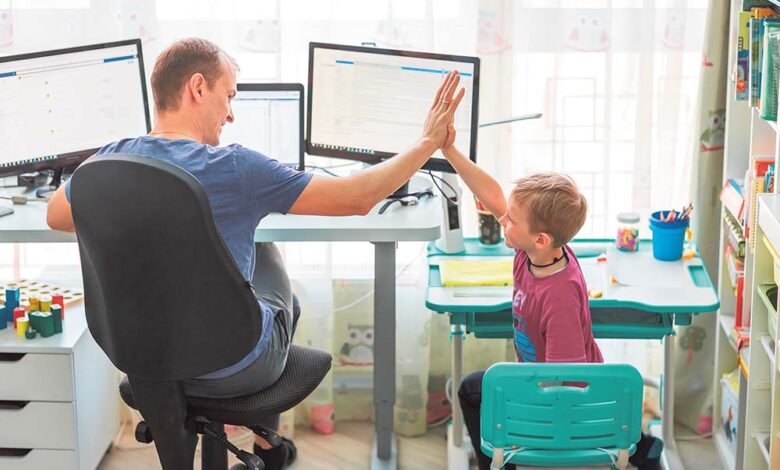How to create the perfect remote work-life balance
Editorial Feature

Life is still very different from how it was 18 months ago. Many of us are still working from home, which as well as having some benefits, can have drawbacks too
Make a space
If you have room, a dedicated workspace is a good idea. That way you can keep it contained and you won’t be distracted by home life while working or vice versa.
Get comfortable, but unless it’s unavoidable don’t work from the sofa or your bed. Ideally, a desk and adjustable chair are the best furniture to use.
See NHS guidelines for setting up for optimum physical health and comfort.
Keep a routine
It can be tempting to sleep in longer, work in your pyjamas and sneak a quick nap into your lunch break. While this might sometimes be just what we need, generally it’s better to try and stick to a schedule. Otherwise, you run the risk of blurring the boundaries between home and work. Rather than working from home, it becomes more like living at work.
So try to stick to normal working hours – or at least make sure you only work at set hours.
Get showered and dressed as if you were attending work in person – and take all your allotted breaks. Do not be tempted to login to work emails in your free time.
Breaks
Even at your busiest, taking time away from what you’re doing is invaluable. Regular screen breaks and periods of not being available on the phone are really important to cut down on stress and preserve some energy.
You will actually return to work more focused and better prepared to be productive. Don’t just switch to social media or television while you’re eating lunch either – try and take a walk around your neighbourhood for some fresh air and a change of scene.

Don’t be a stranger
It can be easy to slip into reclusive habits after a while, particularly if you live alone and work alone.
Even if you can’t go out for any reason, try to stay connected to other humans. Make phone calls rather than emailing all the time – it can feel daunting if it’s been a while, but it can make a huge difference. Your employer has a duty of care to you, so if you are really struggling, speak to your manager about how you are feeling – you should be offered advice and support.
Be realistic
Things are still very different from what we were used to before the pandemic hit. Some people may feel more anxious than ever – about their health; their job security and the emotional wellbeing of such as children or older relatives.
There is only so much you can do – try not to be pressured into taking too much on. Try to make sure you have time for yourself and your own interests as well as spending time with friends and family where possible.
To see your company in any upcoming features we are arranging please email editorial@hurstmediacompany.co.uk









